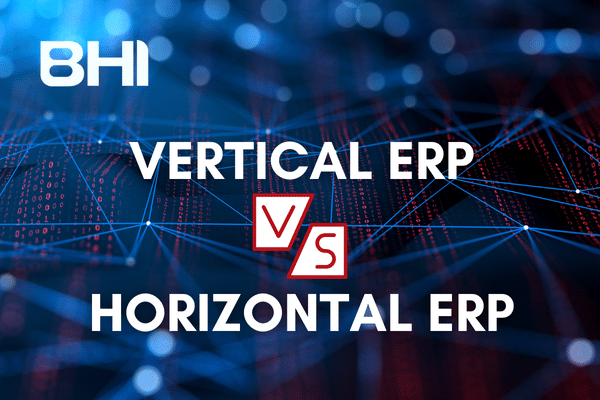In an ever-changing economic landscape, a company’s ability to adapt quickly and effectively has become a key success factor. At the heart of this adaptability lies the notion of scalability, particularly crucial in the field of financial management. But what is scalability in business, and why is it so important in the financial context ?
Definition and scope of scalability
Scalability in business refers to an organization’s ability to manage significant business growth without compromising performance or efficiency. In the field of financial management, this translates into the ability of systems, processes and teams to adapt to increased transaction volumes, more complex operations and diversified reporting and analysis requirements.
The Crucial Importance of Financial Scalability
-
Operational continuity
Scalable financial management ensures a smooth transition during growth phases, avoiding operational disruptions that could hinder the company’s momentum. For example, a scalable invoicing system can go from 100 to 10,000 invoices per month without any significant slowdown in the process.
-
Long-term cost optimization
Investment in scalable solutions, while potentially higher initially, proves economically advantageous over the long term. It avoids the recurring costs associated with frequent upgrades or complete replacement of obsolete systems. A Gartner study showed that companies investing in scalable financial solutions cut their IT costs by 20% over five years.
-
Decision-making agility
Scalable financial tools provide real-time visibility of financial data, whatever the size of the company. This capability enables executives to make informed decisions quickly, a major competitive advantage in volatile markets.
-
Compliance and Risk Management
With growth often comes new regulatory obligations. Scalable systems adapt more easily to changing compliance and reporting requirements, reducing legal and reputational risks.
The Risks of Non-Scalability
Ignoring the importance of scalability can have serious consequences:
-
Operational difficulties
Non-scalable systems can create bottlenecks in financial processes, slowing down the company’s overall operations. For example, an unsuitable treasury system can delay supplier payments, affecting commercial relationships.
-
Loss of financial visibility
When financial tools fail to keep pace with company growth, the quality and reliability of financial data deteriorates. This can lead to ill-informed and potentially costly decisions.
-
Increased vulnerability to errors
Manual processes put in place to compensate for system limitations increase the risk of errors. An ACCA study revealed that 90% of spreadsheets contain errors, underlining the risks associated with reliance on non-scalable tools.
-
Hidden costs and inefficiencies
Lack of scalability often results in hidden costs: overtime, temporary hiring to manage peaks in activity, or even loss of business opportunities due to lack of responsiveness.
Key features of a scalable financial management tool
To be truly scalable, a financial management tool must possess several essential characteristics:
-
Robust cloud architecture
A cloud infrastructure offers the flexibility to rapidly adjust resources as needed. It also enables secure access to financial data from anywhere, facilitating remote working and multi-site management.
-
Integration and interoperability
Robust APIs (Application Programming Interfaces) are crucial to ensure seamless integration with other enterprise systems (ERP, CRM, etc.). This interoperability enables the smooth flow of financial data throughout the organization.
-
Scalable security
As the volume of financial data increases, so must security measures. This includes advanced encryption protocols, multi-factor authentication, and adaptive intrusion detection systems.
-
Dynamic, customizable reporting
The ability to generate complex, customized financial reports is essential. Scalable tools offer business intelligence capabilities to create customized dashboards adapted to different levels of the organization.
-
Multi-entity and multi-currency management
For companies expanding internationally, the ability to effectively manage multiple legal entities and currencies is crucial. This includes automated account consolidation and real-time exchange rate management.
-
Intelligent automation
Automating repetitive tasks is key to maintaining efficiency as your business grows. Scalable solutions often integrate artificial intelligence functionality to automate data entry, bank reconciliation and anomaly detection.
Impact on performance
Adopting scalable financial management tools has a significant impact on several aspects of your company’s performance :
-
Friction-free growth
Scalable financial systems enable companies to rapidly seize new market opportunities without being held back by technical limitations. For example, expansion into new geographical markets can be achieved more rapidly with tools adapted to multi-country management.
-
Greater financial agility
Scalability offers the flexibility needed to pivot rapidly in response to market changes. A company can, for example, rapidly adjust its revenue models (e.g. move to a subscription model) without being limited by its financial systems.
-
Simplified compliance
Faced with increasingly complex financial regulations (GDPR, Sarbanes-Oxley, etc.), scalable tools facilitate rapid adaptation to new reporting and compliance requirements.
-
Improved productivity
By automating low value-added tasks, finance teams can concentrate on strategic activities such as financial analysis and decision support.
Scalability ROI
Although the initial investment in scalable financial solutions can be substantial, the return on investment is generally significant :
-
Lower operating costs
Over the long term, companies see a reduction in the costs associated with system maintenance, upgrades, and the human resources required to manage financial processes.
-
Productivity gains
Increased automation and efficiency of financial processes translates into measurable productivity gains. A McKinsey study showed that companies with highly automated finance functions spend 20% less time on transactional tasks.
-
Risk reduction
Scalable financial systems reduce the risk of error, fraud and non-compliance, avoiding the potentially high costs associated with these issues.
-
Increased value
Robust, scalable financial systems are positively perceived by investors and partners, contributing to higher company valuations.
Conclusion
In an economic world characterized by rapid change and intensifying competition, scalability of financial management tools and processes is no longer an option, but a strategic necessity. Not only does it enable us to manage current growth effectively, it also lays a solid foundation for serene, controlled future expansion.
At BHI we understand that scalability not only makes it possible to manage current growth effectively, but also to lay solid foundations for serene and controlled future expansion. Their solutions are designed to adapt to the changing needs of businesses, whatever their size or stage of development.
Companies that recognize the importance of scalability, and choose to work with experts, position themselves favorably for sustainable success. They give themselves the flexibility to seize market opportunities quickly, while maintaining rigorous control over their financial operations.
BHI offers financial management tools that grow with your business, ensuring a smooth transition at every stage of your growth. Whether for cash management, financial reporting or predictive analytics, our solutions are designed to adapt to your growing needs without compromising performance or security.
Ultimately, investing in financial scalability means investing in your company’s ability to adapt, innovate and grow sustainably. It’s a strategic choice that differentiates tomorrow’s leaders, able to navigate with agility in an ever-changing economic environment.
Contact BHI today to turn your vision into reality with our CCH Tagetik solution, and benefit from expert support that will make the difference to your success.

















